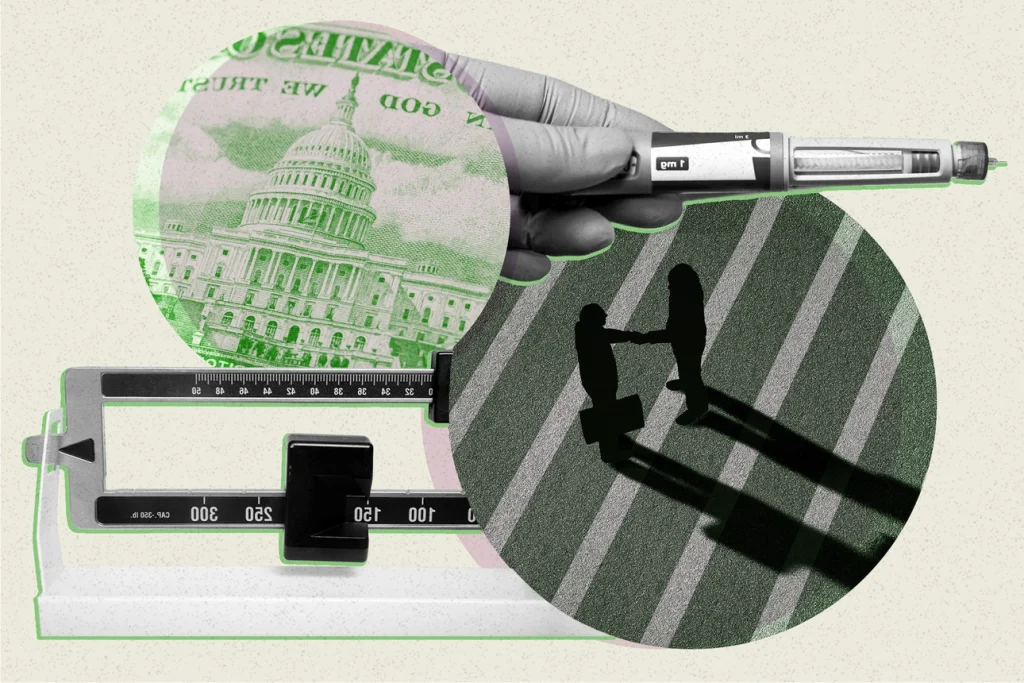
The Weight-Loss Industry Landscape
The weight-loss industry is facing a political and pharmaceutical battle as companies strive for wider drug availability. President Donald Trump holds the key to the future of anti-obesity medications, prompting intense lobbying efforts from pharmaceutical giants.
In Washington, the Trump administration is under pressure to determine the accessibility of these highly effective drugs and the potential coverage by Medicare. While the administration has initially opposed the makers of weight-loss medications, the issue remains unsettled, leading to a crescendo of political discussions.
Pharma Companies Lobbying Efforts
The lobbying bonanza in the weight-loss industry is evident as companies like Novo Nordisk, Eli Lilly, Hims, and Ivim Health invest heavily in influencing federal decisions. With millions spent on lobbying firms and hiring prominent figures like Sean Spicer, the lobbying landscape is intense.
Novo Nordisk, the maker of Ozempic and Wegovy, along with Eli Lilly, the manufacturer of Zepbound and Mounjaro, are at the forefront of lobbying activities. These companies are advocating for stricter regulations on cheaper compounded drugs and the repeal of laws restricting Medicare coverage for weight-loss drugs.
Political Interactions and Industry Responses
Meetings between pharmaceutical CEOs and government officials, including President Trump, highlight the importance of anti-obesity medications in national discussions. However, conflicting views within the administration, especially regarding federal spending and health priorities, pose challenges for drugmakers.
Pharmaceutical companies are tailoring their messages to address concerns raised by Health Secretary Robert F. Kennedy Jr. and other health advocates. Emphasizing the role of medication in complementing lifestyle changes, companies like Eli Lilly are navigating the complexities of the weight-loss debate.
Market Impact and Access Concerns
The availability and affordability of weight-loss drugs are central to the industry’s lobbying efforts. While brand-name companies argue for the superiority and safety of their products, telehealth platforms and compounding pharmacies advocate for continued access to cheaper alternatives.
The debate around FDA-approved drugs versus compounded versions underscores the challenges of ensuring widespread access without compromising safety standards. Patients, policymakers, and industry stakeholders are closely monitoring developments in the weight-loss market.
Future Outlook and Regulatory Decisions
The Trump administration’s stance on Medicare coverage for weight-loss medications and its implications on federal spending remain pivotal issues. While recent decisions have favored existing regulations, the industry is hopeful for future reconsideration based on cost-benefit analyses.
As lobbying efforts intensify and public demand for anti-obesity treatments grows, the weight-loss industry faces a complex landscape of political, regulatory, and market dynamics. The long-term impact of these lobbying activities on drug accessibility and healthcare costs remains a key area of interest for stakeholders.











